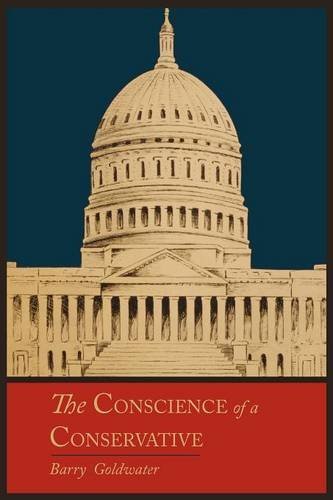What Could Be More Important Than A Seat On The Supreme Court?
July 28, 2018
contentious, but profoundly consequential.
It all began on April 6, 1953, my father, Clarence Manion, confronted Eisenhower’s Secretary of State, John Foster Dulles, in testimony given before the Senate Judiciary Committee. The issue was the Bricker Amendment, designed by Ohio Senator John Bricker to forbid the president from making secret deals like those that Roosevelt and Truman had made with Stalin during World War II.
Thirty years later, Dulles’ son Avery – by then a Cardinal in the Catholic Church –told me had attended that hearing. His dad was mad.
What galled Secretary Dulles most that day was how Dad buttressed his testimony by quoting Dulles himself, from a speech he had given a year before, when Ike was still running hard to defeat Senator Robert Taft, an avid supporter of Bricker. “The treaty-making power is an extraordinary power, liable to abuse,” Dulles had railed then. Treaties “can cut across the rights given to the people by their Constitutional Bill of Rights.”
 The Conscience of a Co...
Best Price: $2.00
Buy New $5.25
(as of 03:55 EDT - Details)
The Conscience of a Co...
Best Price: $2.00
Buy New $5.25
(as of 03:55 EDT - Details)
The Bricker Amendment was designed to restore the Constitutional requirement that such agreements among nations be publicly disclosed as treaties, debated, and valid only after they had received a 2/3 vote of the Senate. Without the amendment, Bricker warned, any president could run rampant over the Constitution simply by making secret “executive compacts” that changed the Constitution. All he needed was a foreign leader who would go along.
After all, Article VI of the Constitution states that treaties shall become part of the “supreme law of the land.”
Although the platform of the 1952 Republican Convention that nominated Eisenhower strongly endorsed the Bricker Amendment, Ike began backing away from it as soon as he took office in 1953. During that year, the American Legion strongly backed Bricker, and my father sang its praises to packed Legion audiences in every state in the union.
Of course, “Bricker” was especially popular because of public indignation over FDR’s secret deal with Stalin at Yalta in early 1945, which President Truman confirmed at Potsdam after Roosevelt’s death later that year. These secret agreements confirmed FDR’s betrayal of the West by giving “Uncle Joe” Stalin half of Christian Europe (which countries remained in the Soviet Union for nearly half a century, as it turned out). At Yalta, FDR and Stalin also laid the groundwork for the creation of the United Nations, under the guiding hand of Soviet Spy Alger Hiss, further endangering the Constitution.
Well, Dulles wasn’t happy with Dad, and that meant that Ike wasn’t happy either. Later in 1953, he created a presidential commission with a “search and destroy” mission: Identify the countless programs, regulations, and entities created by FDR that expanded the Federal Government and increased its powers – and eliminate them. He appointed my father to chair it.
Eisenhower had commissioned this effort because it was a major plank in the campaign of Robert Taft, whom Ike had barely defeated for the 1952 Republican presidential nomination. He made Dad the highest-ranking Democrat in the Administration. Perhaps Ike though Dad would return the favor and forget about Bricker.
But Dad continued advocating Bricker nationwide, and that irked Dulles., So it irked Ike as well. Finally, in February 1954, he called Dad into the Oval Office.
At first, Ike was gregarious. He thanked dad, a lifelong Democrat, for his support in the 1952 general election (even though Dad had supported Taft at the convention). He congratulated Dad on his legal career, which included almost thirty years teaching Constitutional Law at Notre Dame, twelve of them as dean.
“But why do you keep supporting this amendment,” the president asked.
“Mr. President, this is a matter of constitutional principle, this amendment will restore the balance for all presidents to come.”
“But Dean,” a bewildered Eisenhower said “I’m president now.”
Silence.
“Dean, if you’ll back off – just be neutral on this – I’ll put you on the Supreme Court.”
Well now. Dad had always told his law students – since the 20s – “If you take the first bribe, you may as well take the rest.”
He told the president: No dice.
With that, Ike fired Dad from the commission and, when Dad’s old friend and fellow Hoosier, Justice Sherman Minton, left the Court in 1956, Ike named another Irish Catholic Democrat to replace him: William J. Brennan.
In the early 1960s, Ike was golfing one summer in northern Wisconsin. A local newsletter editor asked him about the pluses and minuses of his tenure in the Oval Office.
Ike said his “two biggest mistakes” were Supreme Court Chief Justice Earl Warren and his cohort, Justice Brennan.
“They lied through their teeth in their interviews,” he said.
And Dad? He didn’t take the first bribe. I happily grew up on a farm in rural Indiana instead of Washington. In 1954, Dad started the Manion Forum, one of the first nationally-syndicated conservative radio programs. Six years later, after convincing Barry Goldwater to run for president, Dad published The Conscience of a Conservative. (He gave the book its title and started his own publishing company to print it). In 2014, at a Heritage Foundation conference commemorating the 50th anniversary of Goldwater’s nomination in 1964, Barry Goldwater, Jr. told me his father would never have run if Dad hadn’t kept urging him to.
The Manion Forum was on the air every week for 25 years. The last broadcast aired the week before Dad died on July 28, 1979 – thirty-nine years ago today.

No comments:
Post a Comment